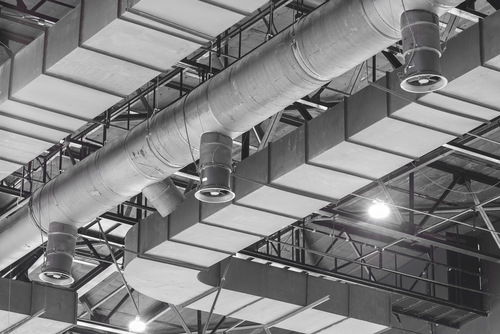The Crucial Role of Air Quality and Ventilation: Enhancing Health and Productivity

In today's fast-paced and urbanized world, the importance of air quality and ventilation cannot be overstated. Whether in our homes, workplaces, or public spaces, the quality of the air we breathe directly impacts our health, well-being, and overall productivity. This article delves into the multifaceted aspects of air quality and ventilation, highlighting their significance and exploring the various ways in which they can be optimized.
- The Health Implications:
Poor air quality and inadequate ventilation have been linked to a myriad of health issues. Indoor air pollution, caused by factors such as volatile organic compounds (VOCs), mold, and allergens, can lead to respiratory problems, allergies, and even more severe conditions like asthma. Additionally, the accumulation of airborne pollutants can contribute to cardiovascular diseases and other systemic disorders. By prioritizing air quality and ventilation, we can create healthier environments that promote well-being and reduce the risk of illness. - Enhancing Cognitive Function:
Studies have shown that proper ventilation and improved air quality can significantly enhance cognitive function and productivity. Fresh air, free from pollutants and stale odors, helps to optimize brain function, improve concentration, and boost overall mental clarity. By ensuring adequate ventilation in educational institutions, offices, and other spaces where cognitive performance is crucial, we can create an environment that fosters learning, creativity, and innovation. - Controlling the Spread of Contagious Diseases:
Especially in the wake of the COVID-19 pandemic, the importance of proper air quality and ventilation in controlling the spread of contagious diseases has become evident. Well-ventilated spaces help dilute and remove airborne pathogens, reducing the risk of transmission. Implementing effective ventilation systems, such as high-efficiency particulate air (HEPA) filters and mechanical ventilation, can play a vital role in preventing the spread of infectious diseases and safeguarding public health. - Productivity and Comfort:
Optimal air quality and ventilation contribute to improved comfort levels, which, in turn, enhance productivity. Stuffy and poorly ventilated spaces can lead to discomfort, fatigue, and decreased motivation among occupants. On the other hand, well-ventilated environments with clean air promote a sense of freshness, comfort, and overall well-being, enabling individuals to perform at their best. By investing in proper ventilation systems and air quality management, employers can create a conducive work environment that maximizes productivity and employee satisfaction.
Conclusion:
From the health implications to cognitive function, disease control, and productivity, the significance of air quality and ventilation cannot be ignored. By prioritizing these factors in our homes, workplaces, and public spaces, we can create healthier, more comfortable, and more productive environments. It is crucial for individuals, organizations, and policymakers to recognize the importance of air quality and ventilation and take proactive measures to ensure their optimization.

